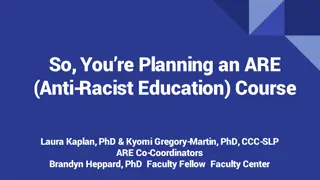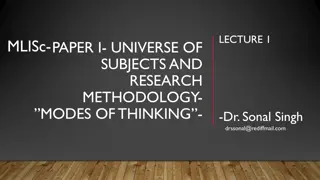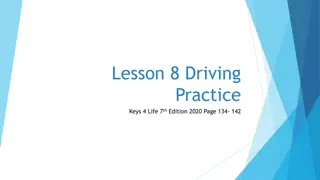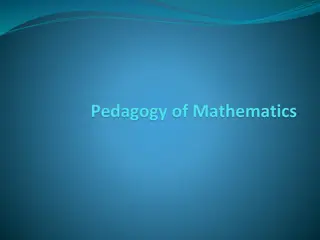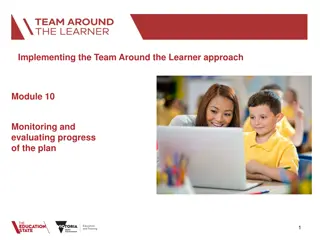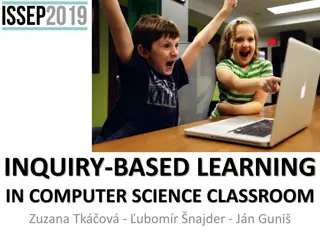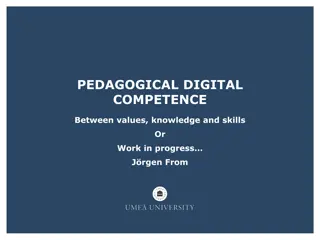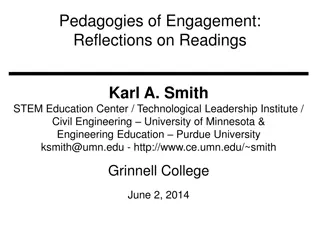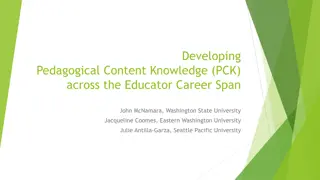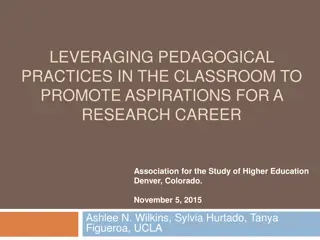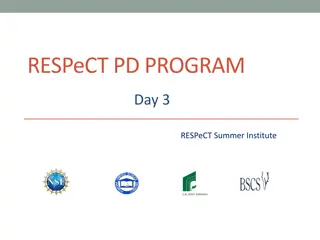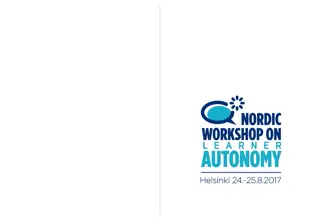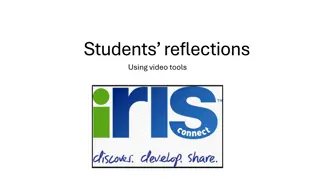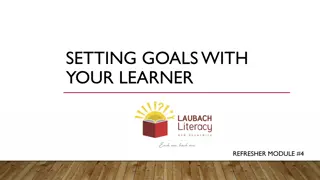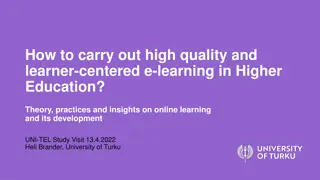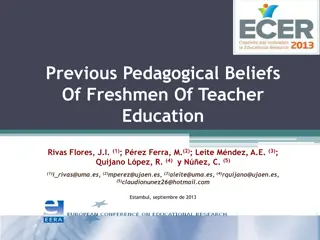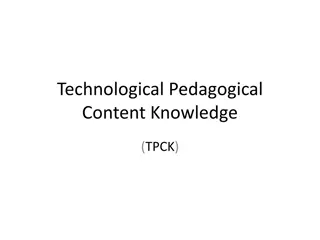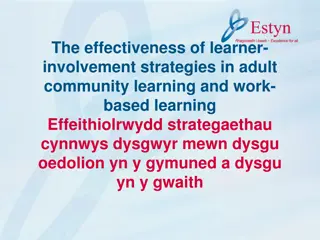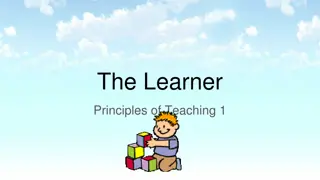Pedagogical Shift in Physical Science: Constructing Knowledge Through Learner-Centered Experiences
There is a significant pedagogical shift in physical science education from viewing science as a fixed body of knowledge to emphasizing the process of constructing knowledge. Learners are now placed at the center stage, engaging in inquiry-based learning, critical thinking, and collaborative interactions to actively participate in understanding and constructing scientific knowledge. This shift involves valuing learners' voices, promoting argumentation, and focusing on critical examination rather than rote memorization. The nature of science is recognized as tentative and influenced by socio-cultural factors, emphasizing creativity, observation, and inference in scientific development. Science education aims to go beyond presenting facts, encouraging learners to collect data, interpret information critically, and construct their knowledge actively.
- Pedagogy
- Physical Science
- Constructing Knowledge
- Learner-Centered Experiences
- Inquiry-Based Learning
Download Presentation

Please find below an Image/Link to download the presentation.
The content on the website is provided AS IS for your information and personal use only. It may not be sold, licensed, or shared on other websites without obtaining consent from the author. Download presentation by click this link. If you encounter any issues during the download, it is possible that the publisher has removed the file from their server.
E N D
Presentation Transcript
Pedagogy of Physical Science Part 2 Unit - 1
Unit 1 PEDAGOGICAL SHIFT IN PHYSICAL SCIENCE Pedagogical Science as mere collection of facts and principles to the constructivist experiences taking learner at the centre stage. . Today s pedagogy gives value to the voice of learners and argumentation analyzing knowledge and their involvement in the process of inquiring science in a collaborative set-up rather than their ability of rote memorization. Pedagogical shift shift: : There is a shift from understanding and inquiry-oriented learning their questions, and their abilities of making justification, synthesizing and
Pedagogical shift from science as fixed body of knowledge to the process of constructing knowledge Earlier, nature of knowledge in general and nature of knowing in particular was considered as a fixed entity. The knowledge through diverse learning strategies includes previous experiences of the learner The acquisition and the construction of scientific knowledge is passive receipt of the knowledge, and active involvement and critical examination based on critical thinking on the part of the learners. Pedagogical shift from science as fixed body of knowledge to the process of constructing knowledge pedagogy which we use to construct fundamental difference between the
Shift in pedagogy of science from affixed body of knowledge to the process of constructing knowledge has many dimensions. It includes a shift in our understanding of Nature of science Knowledge Learners, learning and teachers Assessment Science curriculum Scientific method and scientific inquiry Importance of critical pedagogy Approaches to planning Various aspects of inclusive education etc.
1. Pedagogical shift: Nature of science The knowledge in science is subject to change. It is tentative in nature. Socio-cultural factors also have impact on nature of science. Role of creativity, observation, inference, etc. have been understood to be important in the development of science. In simple terms, we can say that scientists collect relevant data and use evidences to explain ideas under consideration. Scientists can change their ideas on the basis of contemporary development in their fields and create new ideas. 1. Pedagogical shift: Nature of science
2. Pedagogical shift: Knowledge Science is an enterprise that has evolved over many thousands of years and continues to evolve. Scientific knowledge is always subject to change and its modification is not an end product in scientific inquiry. Teaching learning of science should go beyond presenting the facts and principles and result of investigations. Although knowledge is something personal and individual Learners should be facilitated to make observations, collect and interpret data, use the acquired information in critical way to construct their knowledge. 2. Pedagogical shift: Knowledge
3. Pedagogical shift: Learners, learning and teachers Learners get motivated to learn when they discover their own ideas, asking their own questions and trying to find out answers for themselves. An effective pedagogical design, a teacher has to take care of the existing ideas of the learners and the difference in nature of their ideas with the scientific explanation of those ideas. The learning of science must help them nurture their curiosity, rather than their ability to reproduce textual knowledge. teacher s role is as to being a facilitator of transforming knowledge and as a supporter in enhancing learning through multiple exposures 3. Pedagogical shift: Learners, learning and teachers
4. Pedagogical shift: Assessment NCF-2005 recommends a shift in modes of assessment by making it more flexible It emphasizes various modes of assessment including all meaningful aspects of performance, e.g. activities, experiments, journals, illustrations, oral presentations, peer evaluation, self evaluation, group work assessment, models, portfolios, and other art if acts of learning. There is shift in emphasis from testing rote memorization to understanding and application to the knowledge 4. Pedagogical shift: Assessment
5. Pedagogical shift: Science curriculum and scientific inquiry 5. Pedagogical shift: Science curriculum and scientific inquiry The scientific inquiry varies widely within scientific disciplines and also across various disciplines. science curricula, we need to emphasize the importance of merging classroom experiences of a learner in science with the experiential construction of scientific knowledge by the learner outside the classroom
Pedagogical shifts recommended in NCF Teacher centered and fixed designs to Learner centered, flexible process Teacher s direction and decisions to Learner s autonomy Teacher s guidance and monitoring of learning to Teacher s facilitation, support and encouragement for learning Passive reception in learning to Active participation in learning Learning within the four walls to Learning in the wider context of the classrooms Knowledge as given and fixed to Knowledge as it evolves and is created Disciplinary, Multidisciplinary and educational focus Linear exposure to Multiple and divergent exposure Short and few Assessment to Multifarious and Continuous Assessment Pedagogical shifts recommended in NCF- -2005 2005
6. Pedagogical shift: scientific method to science as inquiry Science is both the study of knowledge and the process of acquiring and refining knowledge. scientific method which helps them to develop the power of reasoning, critical thinking, creativity, collaborative learning and application of scientific knowledge. The student-teacher should also be provided with ample opportunities for self-learning, reflection and assimilation. NCFTE 2009 To inculcate scientific temper to the learner, the science teacher has to facilitate the learners to think like a scientist 6. Pedagogical shift: scientific method to science as inquiry
Democratising Science Learning Pedagogy Critical Pedagogy is child-centered pedagogy. It facilitates collective decision making through open- mindedness and by encouraging and recognizing multiple views of the learners It emphasizes to move beyond authoritative role of the teacher by promoting sharing of power with the learners It is a pedagogy that takes into accounts the experiences and perception of learners and helps them to learn in a fear free and independent form. Democratising Science Learning Critical Pedagogy Critical
In the context of critical pedagogy, NCF recommends Participatory learning and teaching, emotion and experiences need to have a definite and valued place in the classroom. Children need to be made aware that their experiences and perceptions are important. Children should be encouraged to develop the mental skills needed to think and reason independently. It is important to value what learners learn out of school- their capacities, learning abilities and knowledge. More importance for the children of under privileged class Children are critical observers of their own conditions and needs. .cont. In the context of critical pedagogy, NCF- -2005 recommends 2005
Children should actively participate in discussions and problem solving related to their education and future opportunities. Teacher s engagement with children is critical in the classroom, because it has the power to define whose knowledge will become part of the school-related knowledge and whose voice will shape it. When children and teachers share and reflect on their individual and collective experiences without fear of judgment If children s social experiences are to be brought into the classroom, it is inevitable that issues of conflict will need to be addressed. Conflict is an in escapable part of children s lives.
To use conflict as a pedagogic strategy is to enable children to deal with conflict and facilitate awareness of its nature and its role in their lives. A pedagogy that is sensitive to gender, class, castes and global inequalities is one that does not merely affirm different individuals and Collective experiences but also locates them within larger structures of power and raises questions Other literary sources in their own environments can be facilitated by encouraging learners to compare, think and communicate about elements that exist in their own environment. Repository of knowledge exist in different mediums, hence all these forms, whether television programmes, advertisements, songs, paintings, etc. need to be brought to create a dynamic interaction among learners themselves. Critical pedagogy provides an opportunity to reflect critically on issues in terms of their political, social, economical and moral aspects. It entails the acceptance of multiple views on social issues and a commitment to democratic form of interaction.
Role of teachers in critical pedagogy Role of teachers in critical pedagogy The role of teachers is to provide a safe space for children to express themselves, and simultaneously to build in certain form of interactions. Teachers need to step out of the role of moral authority and learn to listen with empathy and without judgment Teacher should enable children to listen to each other. While consolidating and constructively stretching the limits of children s understanding, they need to be conscious of how differences are expressed. A safe space of an atmosphere of trust would be made by teacher in the classroom ..cont.
Chances for children can share experiences and where conflict can be acknowledged and constructively questioned, and provided solutions, however tentative can be mutually worked out. In particular, for girls and children from under privileged social groups will be given priority Schools and classrooms should be spacious for discussing processes of decision-making, for questioning the basis of their decision, and for making informed choices. Teachers need to cultivate an understanding of the cultural and socio-economic diversity that learners bring with them to school.
Pedagogical shift planning teaching learning experiences It is important to listen to learners and encourage them to engage in assessing and evaluating their own ideas. There is an urgent need to build up activities and strategies that are effective not just for arrange of science content areas but also productive for exploring and challenging learners conceptions. the shift in planning that can be visage in the light of the learner s need and society expectation. there is uniformity in what is going on in the classrooms across the state or region. Teachers need to develop the ability to plan units of four or five lessons for each topic Pedagogical shift planning teaching learning experiences
Planning teaching What will be teaching? How much do I know the syllabus? How do I prepare the students for the upcoming exams? What serialization of theconceptsshouldIconsider? What objectives are to be used for measuring performance of the students? When and how to plan the measurement of the learning integrating with teaching experiences with respect to my lesson plans? How do I control the students? How can the knowledge I have to transmit be the best? Who are the students who have succeeded? Planning teaching- -learning: Before shift learning: Before shift
Planning teaching Following are the respective changes in the questions that need to be answered in order to plan teaching-learning process in physical science: What are the learning needs and previous experiences of my learners? How much I am acquainted with the learning needs of my learners? How do I facilitate each learner s learning? How do I incorporate the differential learning pace of my learners? What is the progress of the learner as compared to her previous learning experiences? How do I analyse the present learning evidences to plan further learning experiences for the learners? How do I facilitate and support each learner in learning? How best can knowledge be constructed by all learners? What next? Planning teaching- -learning: After shift learning: After shift


